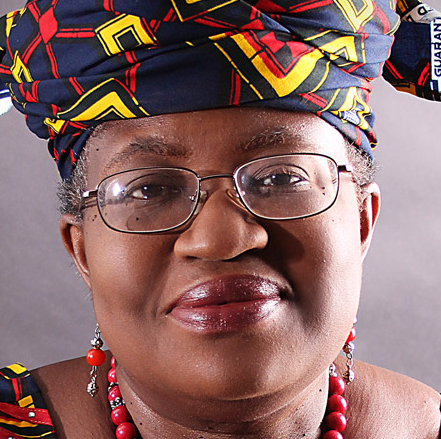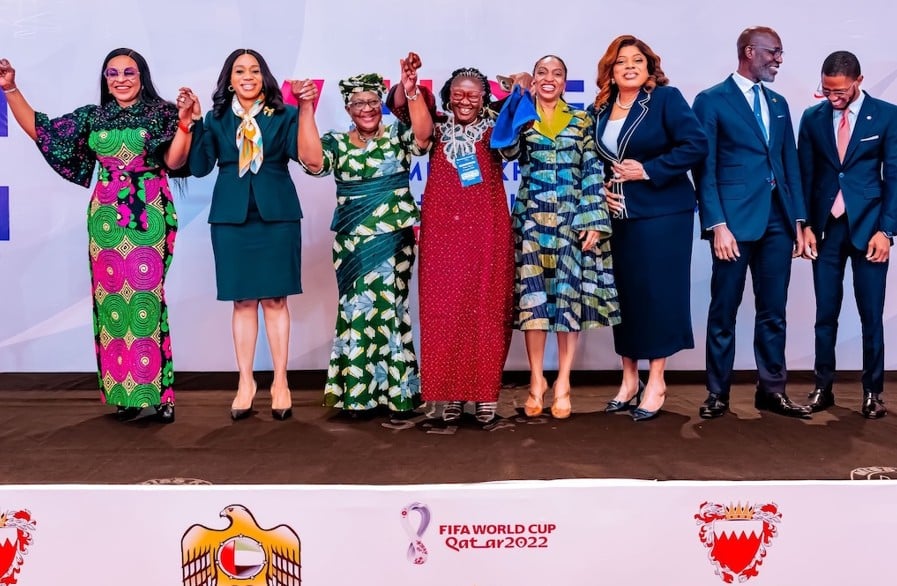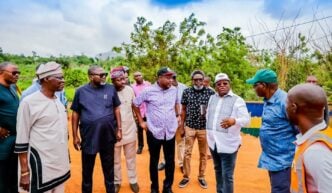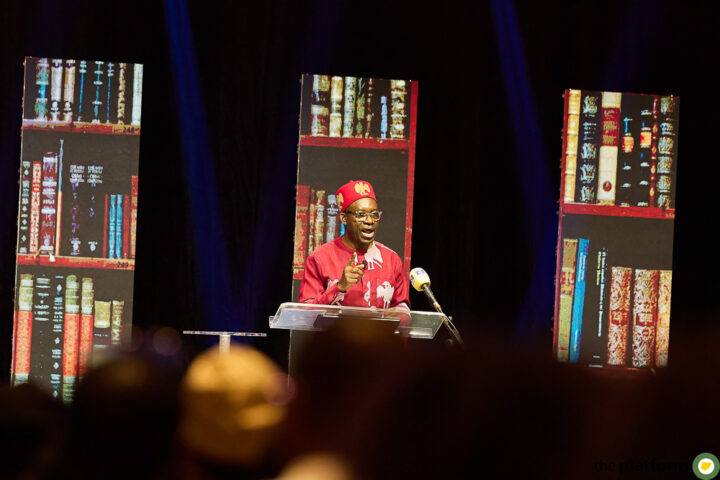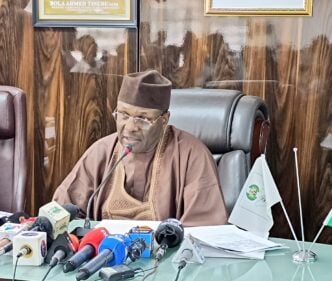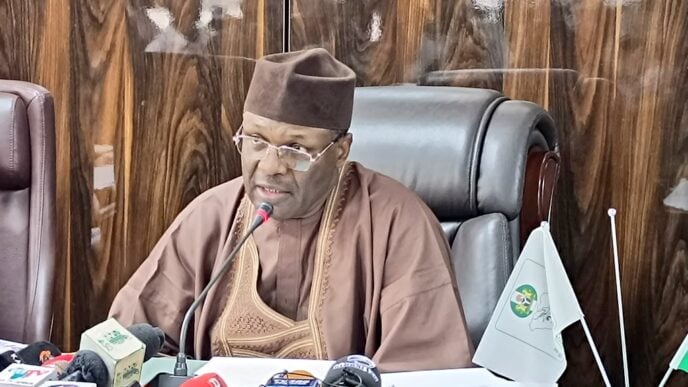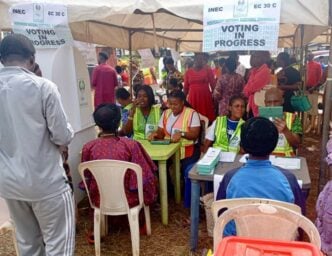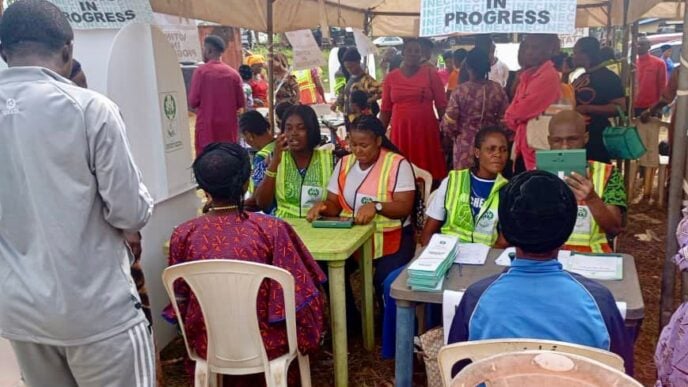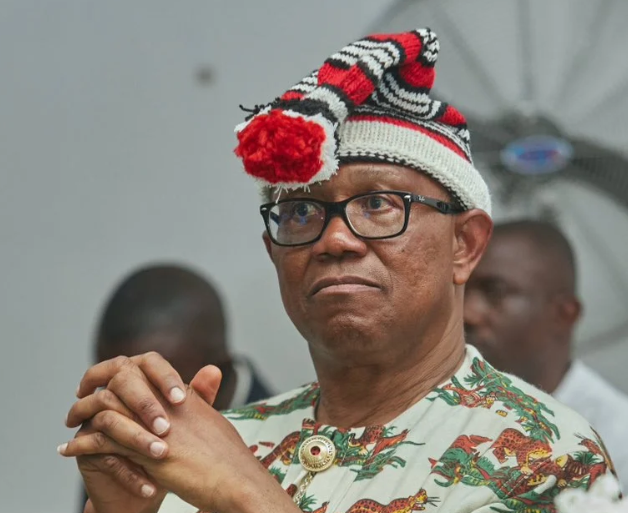This is the text of a speech made at the official launch of the WEIDE Fund in Nigeria at the Abuja Continental Hotel on 14, August.
Your Excellency, Senator Oluremi Tinubu, First Lady of the Federal Republic of Nigeria, very ably represented by the wife of the Vice President, HE Hajia Nana Kashim Shetima; Honourable Minister Jumoke Oduwole, Minister of Industry, Trade and Investment; Honourable Minister of State for Industry, Senator John Enoh; Honourable Minister of Women Affairs, Hajiya Imaan Sulaiman-Ibrahim; Comptroller-General Bashir Adewale Adeniyi; Excellencies and our distinguished donors from the United Arab Emirates, the State of Qatar, and FIFA, Ms Nonye Ayeni and the whole NEPC team, colleagues from the WTO and the International Trade Centre, and most importantly, our incredible women entrepreneurs from across this great nation.
Good morning. I am so happy to be with you here in Nigeria for such a milestone occasion.
Today marks the official launch in Nigeria of the Women Exporters in the Digital Economy Fund — the WEIDE Fund — a $50 million initiative that the World Trade Organisation (WTO) and the International Trade Centre (ITC) established together to open doors for women entrepreneurs who trade digitally. It is great to launch this fund today at a time when global trade is going through extremely challenging times of unilateralism and increased protectionism.
Advertisement
The goal of the fund is simple, but ambitious: to give women the tools, the knowledge, the networks, and the resources they need to access global value chains, so their businesses are not just surviving, but thriving, on the world stage.
Today, total global trade is $30.4 trillion or about 27 per cent of the global GDP of $114 trillion. Digital trade is the fastest growing segment of global commerce. In fact, digitally delivered services trade (a segment of digital trade involving outsourcing things like business process services, consulting and IT services, legal, medical, educational and other services) is the fastest growing segment of trade. At $4.25 trillion, it has grown four-fold since 2005. But Africa’s share of the most important part of digital trade is minuscule at about 1 per cent. Given our entrepreneurial talent, it is an aspect of digital trade that we hope many of our women can see as an opportunity to also grow their businesses in this area.
This year, the WEIDE Fund is rolling out in four countries — Jordan, Mongolia, the Dominican Republic, and Nigeria.
Advertisement
And Nigeria’s participation is special. Out of more than 600 business support organisations from around the developing world that competed to work with us, the Nigerian Export Promotion Council, led by the Executive Director, Nonye Ayeni, stood out. The NEPC earned its place through a strong, well-thought-out, and competitive application. As a Nigerian, they made me very proud that Nigeria won its place competitively. Over the last seven months, the NEPC team, together with our experts at the WTO and ITC, have worked 24/7 to get us here today.
Now, let’s talk about the heart of today’s celebration — the women.
In Nigeria, 67,000 women entrepreneurs applied to be part of WEIDE. Sixty-seven thousand! The competition was fierce. Initially, we planned to support 100 women. But the quality of the applications was so high and the innovation was so inspiring, that we increased this to 146 awardees.
Today, we are awarding the 146 Nigerian women entrepreneurs who have been selected and will be starting the process as the first cohort of the WEIDE fund. The monetary awards will be disbursed directly into the accounts of the women, based on certification by NEPC that they are delivering in the business the way they are supposed to. Sixteen of the businesses selected today have been selected for what we call the Booster Track — and they will each receive up to $30,000 in grant funding, plus an intensive 18-month technical assistance programme. The WEIDE Team will work with them – holding their hands, so that they:
Advertisement
- Learn how to sell on major digital platforms;
b. Understand export rules in different countries;
c. Overcome technical barriers to trade;
d. And connect to banks and investors for further growth and investments.
Another 130 entrepreneurs are in our Discovery Track — each receiving up to $5,000 and 12 months of dedicated business support.
At this juncture, three bank Managing Directors have taken the time to be with us today – Dr Nneka Onyeali-Ikpe of Fidelity Bank, Ms Miriam Olusanya of Guaranty Trust Bank and Mr Roosevelt Ogbonna of Access Bank.
As you have heard, the women honoured today represent an array of sectors: From fashion, apparel and textiles; to tourism, hospitality and entertainment; agriculture and agrifood processing; furniture and home goods; beauty and personal care; food and beverages; and the fast-rising IT sector.
These women are from all over Nigeria and they are the heart beat of Nigeria’s entrepreneurial energy!
Advertisement
The WEIDE Fund is a transformative initiative that is designed to innovate and change the global landscape of women in trade, specifically when it comes to digital trade. At the WTO, we found that women who trade internationally earn, on average, 2.8 times more than women who only sell locally. That’s a game-changer. And if you add the power of digital trade, the opportunities multiply even further.
This is why I am especially pleased to see Dr Bosun Tijani, the minister of Communications, Innovation and Digital Economy here today. Because the success of digital trade depends on the foundation your ministry helps build. Fast, affordable and reliable digital infrastructure and the skills to use it.
Advertisement
When it comes to digitisation and the infrastructure needed, globally 67 per cent of the population about 5.4 billion people are now online. In Nigeria, the figure is much lower – about 45 per cent. That means that more than half of Nigerians are still not connected. In this regard, we applaud the proposed ambitious $2 billion, 90,000 kilometre national fibre optic network aimed at expanding internet access, especially in our secondary towns and rural areas.
Yet, we know a great deal of the gap in internet access has to do with accessibility, reliability and affordability of power. No nation can truly digitise without a steady supply of electricity. We are still struggling with this in Nigeria and I hope there can be strong collaboration between the Power and Digital Communication Sectors on solutions, so that Nigeria can seize the emerging opportunities in the digital arena.
Advertisement
To help ensure our women continue to be a strong part of the digital era, we also need the inter-ministerial support of the Ministry of Trade, Investment and Industry, as well as the Minister of Women Affairs, all working together.
I referred just now to the opportunities that await Nigeria in the Technology and Digital arena. The potential is enormous. According to the World Economic Forum, the ICT Sector contributed 18 per cent to Nigeria’s GDP in 2022, a leap from less than 1 per cent in 2001. But despite the advances we celebrate today, we know that women have not played as big a role in the sector as they could. A joint study by the Washington DC based Center for Global Development and the One Campaign, found that of almost 100 Nigerian tech companies surveyed, only 30 per cent were owned by women. Up to one-third of these companies did not even have women working in them. We also know that Nigeria’s ranking in the latest Global Gender Gap report by the WEF, released in June, is not encouraging. Nigeria ranked 128th out of 148 countries, putting us in the bottom tier of countries with large gender gaps. Even though much of Nigeria’s poor performance is due to widening gaps in political empowerment, educational attainment, and health and survival, pushing further on economic participation and empowerment, where we are doing better can further enhance and lift Nigeria’s standing globally.
Advertisement
That is why at the WTO and ITC, we have worked hard with the support of our donors, the United Arab Emirates, the State of Qatar and the FIFA-Qatar World Cup Legacy Fund, to prioritise the empowerment of women in digital trade. The WEIDE Fund will provide us with an opportunity to help women entrepreneurs improve their economic, social and, hopefully, political standing, thereby narrowing some of the gender gaps. It will do so by enabling women to:
- Hire more people and create jobs in their communities;
b. Develop economic, social and leadership skills that are competitive on both the local and global stage;
c. Help diversify Nigeria’s export base;
d. Increase exports and bring in more foreign exchange;
e. Build resiliences against economic shocks by tapping into multiple markets.
These achievements have to be buttressed with support at the WTO for a key agreement which involves extending the moratorium on charging custom duties on digital trade. If countries start imposing custom duties on cross border digital trade, costs will go up, trade will shrink, and MSMEs, especially women-led firms, would lose one of their best pathways into international markets. So there is work to be done to ensure that women succeed.
Because when women succeed, communities succeed and economies succeed. As I often say, empowering women is not just a moral case, it is an economic case. It is, in fact, smart economics.
So to our Nigerian awardees — congratulations. You earned this award through hard work and vision. Now, I encourage you to use this funding and training to dream bigger, scale higher, and go further. Help empower other women and help build a Nigeria that is stronger and better for us and our children. When I come back in two years to see what you have done, I want you to show me how many more people you have hired, how many new markets you have reached, and how you have inspired the next generation of Nigerian women entrepreneurs.
Up Naija!
Ngozi Okonjo-Iweala is the director-general of the World Trade Organisation (WTO).
Views expressed by contributors are strictly personal and not of TheCable.
